Ottoman period in the history of Serbia
In previous articles, it was told about the situation of Armenians, Jews and Greeks in the Ottoman Empire. And also - about the situation of Bulgarians in Turkey and Muslims in socialist Bulgaria. Now we will talk about the Serbs.
Serbia under the rule of the Ottoman Empire
Many believe that Serbia was conquered by the Ottomans in 1389 - after the famous Battle of Kosovo. This is not entirely true, because the Serbs then turned out to be not subjects of the Turkish sultans, but their vassals, retaining their rulers (like the Russian principalities during the Iga period).
Serbian despots (a title received from Byzantium by Stefan Lazarevich, son of a prince who was executed by Bayazid I after the battle on the Kosovo field) proved to be very loyal and useful vassals. It was the attack of the Serbs on the flank of the advancing Hungarian cavalry that brought the Ottomans victory over the crusaders in the battle of Nikopol (1396).
In 1402, the Serbs fought near Ankara in the army of Bayezid I Lightning, surprising Tamerlane with their valor and fortitude. After the defeat, they covered the retreat of Bayazid's eldest son (Suleiman) and actually saved him from death or shameful captivity.
The Serbian despot Georgy Brankovich (father-in-law of Sultan Murad II) avoided participating in the last crusade against the Ottomans and did not participate in the Battle of Varna. Later, according to many researchers, he did not allow the Albanian army of Skanderbeg to pass through his lands, which ultimately could not take part in the Second Battle of the Kosovo Field. And after the defeat of the Christians, George completely captured the retreating Hungarian commander Janos Hunyadi and released him from captivity only after receiving a rich ransom.
For a long time there was a struggle for Belgrade, which the Turks called the "Gate of the Holy War". And finally Serbia was conquered by the Ottomans only in 1459. Like all non-Muslim Ottoman subjects, Serbs paid a poll tax (jizye), land tax (kharaj), and military taxes. Their children were periodically taken away according to the "devshirme" system (the literal translation of this word is "changelings": meaning a change of faith). But at first they could not be called absolutely intolerable.
The religious tolerance that the Ottoman sultans demonstrated at first allowed the Serbs to preserve Orthodoxy, as well as to avoid forcible catholicization. According to a number of historians, the Ottoman conquest helped preserve and expand the Serbian lands, which the neighbors claimed. For example, it is estimated that from 1100 to 1800 Belgrade belonged to Serbia for only 70 years. But Hungary owned this city in the following periods: 1213ꟷ1221, 1246ꟷ1281, 1386ꟷ1403, 1427ꟷ1521. Only after the capture of this city by the Ottomans in 1521 did it become Serbian forever.
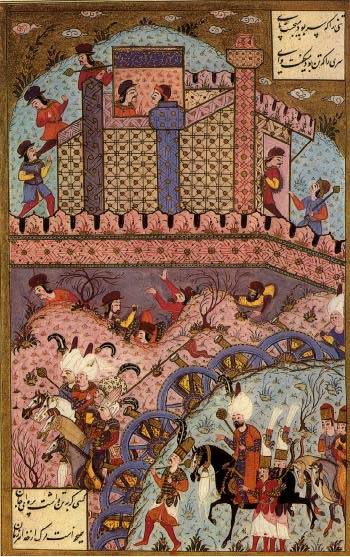
This miniature is signed: "Siege of the Hungarian city of Estolnibelgrad by Suleiman I in 1521".
The era of Serbian viziers
The XNUMXth century in Turkey is sometimes called the “century of the Serbian viziers” (and the XNUMXth century is the era of the Albanian viziers, meaning the long reign of the representatives of the Köprülü clan). The most famous Serbian grand vizier was Mehmed Pasha Sokkolu (Sokolovic).
Serbian boy Bayo Nenadic was born in the village of Sokolovichi in Herzegovina in 1505. At the age of about 14, the Ottomans took him under the devshirme system and converted him to Islam, giving him a new name. In the Janissary corps, he fought at the Battle of Mohacs in 1526 and took part in the siege of Vienna in 1529. The career of the young Serb was simply dizzying. In 1541 we see him as the head of the court guard of Suleiman I Qanuni (the Magnificent) - at that time he was 36 years old. In 1546, he succeeded the famous Ottoman admiral Khair ad-Din Barbarossa as kapudan pasha. In 1551, Mehmed was appointed Beylerbey of Rumelia, and successfully fought in Hungary and Transylvania. But the peak of this Serb's career was still ahead. Under three sultans (Suleiman I the Magnificent, Selim II and Murad III) for 14 years, 3 months and 17 days, he served as the grand vizier. Under the son and grandson of Suleiman I, it was Mehmed Pasha Sokkolu who actually ruled the state.
The perseverance and talents of two renegades - the Serb Mehmed Pasha Sokkolu and the Italian Uluja Ali (Ali Kilich Pasha - Giovanni Dionigi Galeni) allowed the Ottoman Empire to quickly restore the fleet after the defeat at Lepanto.
Mehmed then said to Uluju, who was in charge of building new ships:
To the Venetian ambassador, Barbaro Mehmed Pasha said:
A year later, new Ottoman squadrons went to sea. And the Venetians were forced to ask for peace, agreeing to pay 300 thousand gold florins.
Mehmed Pasha was married to Esmekhan-Sultan, the daughter of Selim II and Nurbanu, the granddaughter of Suleiman the Magnificent and Roksolana. Their son Hasan Pasha held the posts of beylerbey of Erzurum, Belgrade and all of Rumelia. The granddaughter was married to the Grand Vizier Jafer. Mustafa's nephew was appointed governor of Buda. Another nephew, Ibrahim Pechevi, became an Ottoman historian.
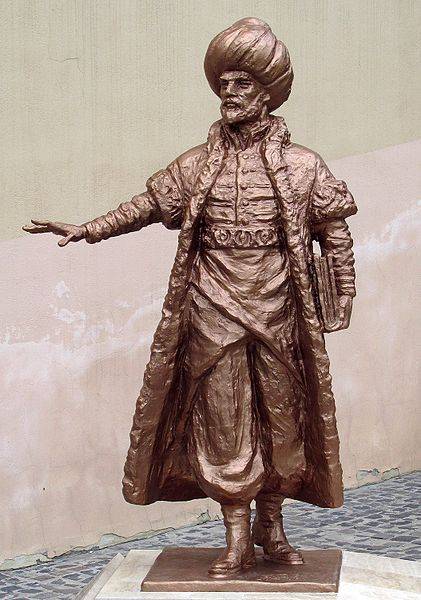
Ibrahim Pecevi. Monument in the town of Pecs. Hungary
In 1459, Mehmed Fatih (Conqueror) closed the Patriarchate in Pecs, subordinating the Serbian Church to the Bulgarian patriarchs. But in 1567 the Grand Vizier Mehmed Pasha Sokollu achieved the restoration of the Pec Patriarchate, which was headed by his brother Macarius, later canonized by the Serbian Orthodox Church.
After the death of Macarius, the Serbian patriarchs in turn were his nephews - Antim and Gerasim.
And in Constantinople the former Janissary built the so-called "Sokollu Mehmed Pasha Mosque" - one of the most beautiful in this city.
This engraving, now kept in Augsburg, depicts the assassination of Sokkol Mehmed Pasha by an unknown dervish in 1579.
Hayduks and Yunaki
After the death of Mehmed Pasha, the Ottoman Empire began to suffer setbacks in the Balkans. The last major success of the Ottomans in the Balkans was the capture of the city of Bihac in 1592 (currently located in Bosnia and Herzegovina). In 1593, the so-called "Long War" began between Turkey and Austria, which ended in 1606, during which some Croatian territories were recaptured from the Ottomans.
The position of the Serbs in the Ottoman Empire deteriorated sharply after the end of the "Holy League War" (in which the rebellious Serbs supported the opponents of the Ottomans) and the conclusion of the Karlovytsky Peace Treaty, which was disadvantageous to Turkey, in 1699, according to which Serbia still remained part of the Ottoman Empire. And now the sultan's wrath fell on these lands.
Some Serbs even earlier (in response to oppression) went to the forests and mountains, becoming Yunaks or Haiduk. Now the number of these "partisans" has increased significantly.
Old Novak (Baba Novak) was one of the first known hayduks, who is considered to be their national hero by both Serbs and Romanians.

Baba Novac. 1882 engraving
He was born in 1530 in Central Serbia. He spoke three languages fluently - Serbian, Romanian and Greek. He received the nickname "Old" in his youth - after the Turks knocked out all his teeth in prison (which sharply "aged" his face).
He gained the greatest fame in 1595-1600, when, at the head of 2 thousand haiduks, he very successfully fought against the Ottomans on the side of Mihai the Brave, who ruled at that time Transylvania, Wallachia and Moldavia. Took part in the liberation of Bucharest, Giurgi, Targovishte, Ploiesti, Ploevna, Vratsi, Vidin and other cities. But in 1601, Giorgio Basta (an Italian general in the service of the Habsburgs) accused Novak of treason: together with his two captains, he was sentenced to be burned at the stake. This execution took place on 21 February. At the same time, to make death more painful, their bodies were periodically doused with water. And on August 9 of the same year, Giorgio Basta ordered the execution of Novak's ally, Mihai the Brave.
Another famous hayduk was Stanislav ("Stanko") Sochivitsa, who lived in the middle of the 1715th century (1777-XNUMX).
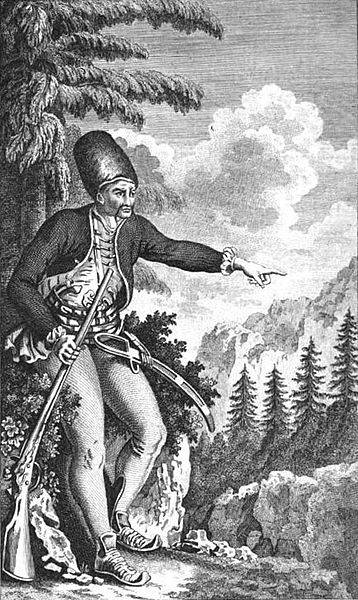
Stanislav Sochivitsa. Engraving by an unknown author. 1779 g.
Together with two brothers, he operated in Dalmatia, Montenegro, Bosnia and Herzegovina. This hayduk was cruel - quite in the spirit of that time. However, folk songs and legends claim that he never killed or robbed Christians.
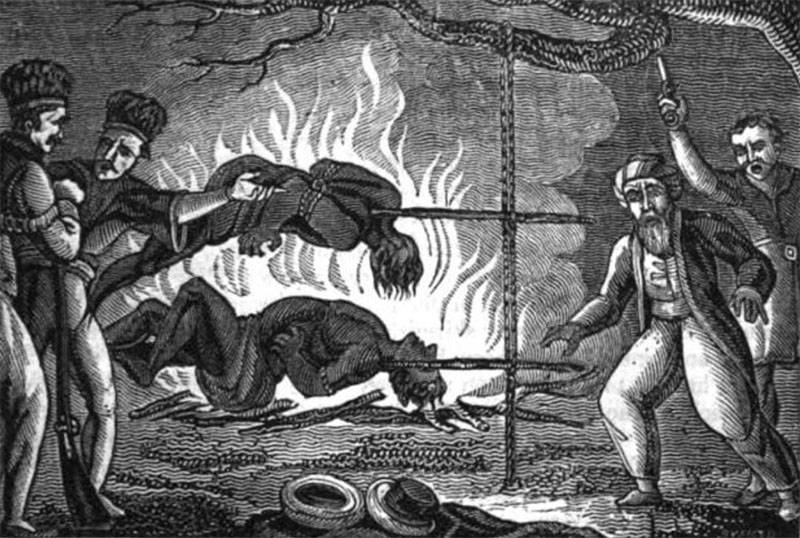
In this engraving by an unknown author, the Yunaki Sochivitsa fry captured Turks.
Two years before his death, the already elderly Sochivica retired and moved to the territory of Austria-Hungary. By that time, his fame was so high that even Emperor Joseph II wished to meet with him, who after a conversation appointed him commander of a detachment of Austrian pandurs (light infantrymen guarding the border of the empire).
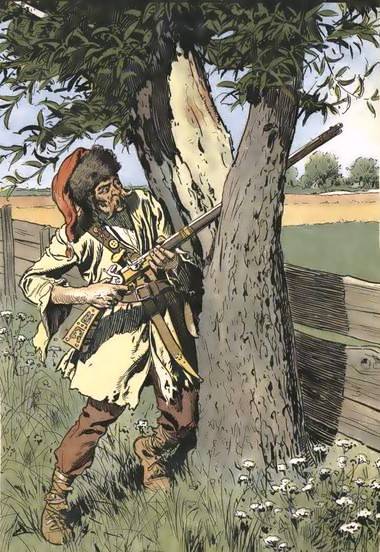
Austrian pandur from 1760
The founders of the dynasties of the Serbian kings - Kara-Georgy and Obrenovic - were the commanders of the Yunak detachments.
There were Serbs among the Dalmatian Uskoks, but we will talk about these pirates of the Adriatic in another article.
"Great Migration of Serbs"
In 1578, on the borders of the Austrian Empire, the Military Border was organized (otherwise it is called the Military Krajina) - a strip of land from the Adriatic Sea to Transylvania, which was under the direct control of Vienna. Currently, the territory of the Voennoy Krajina is divided between Croatia, Serbia and Romania.
Christians who left the Ottoman Empire began to settle here, at least half of whom were Orthodox Serbs - this is how the famous Borichars appeared. Some historians point to the similarity of the border with the Russian Cossacks of the Caucasian line.
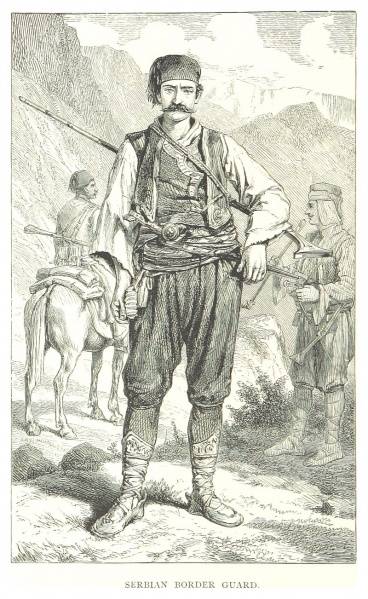
Serbian border
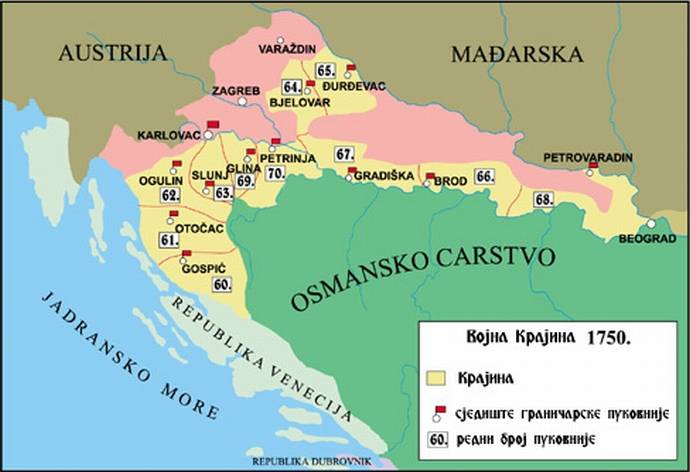
Military Krajina in 1750
Two waves of Orthodox refugees, called the "Great Migration of Serbs", stand out in particular.
The first (1690) was associated with the defeat of the rebels during the "Holy League War" in which the Serbs supported the "Holy Alliance" (united Austria, Venice and Poland) in its war with the Ottoman Empire. With the help of Austrian troops, the rebels then managed to liberate almost the entire territory of Serbia and Macedonia from the Turks. Nis, Skopje, Belgrade, Prizren and many other cities were in the hands of the rebels. But then there was a defeat at Kachanik and a difficult retreat. The advancing Ottomans severely punished the population of the abandoned cities and villages. About 37 thousand people left Kosovo and Metohija for the territory of Austria.
The second wave of the “Great Migration” took place in 1740 after the Russo-Austro-Turkish War of 1737ꟷ1739. This time the Serbs moved not only to Austria, but also to Russia. Later they were joined by refugees from Moldova and Bulgaria. All together, in 1753, they were settled in the territories that received the name Slavic Serbia and New Serbia.
Attempts to Islamize Serbs
As we have already said, since the war with the "Holy League" and the Karlovytsky Peace, the Ottomans did not trust the Serbs, who in their eyes had ceased to be reliable subjects. The Turks have now begun to encourage the resettlement of Muslim Albanians to Serbian lands and to pursue a policy of Islamizing the Serbs. The Serbs who converted to Islam were called arnautas by the Serbs (they should not be confused with the Albanian arnauts, which we will talk about in another article). It was the descendants of the Arnautas who made up a significant part of the modern Kosovar "Albanians" And some of the Arnautash eventually began to identify themselves as Turks.
Since the influence of Orthodox patriarchs was traditionally strong in Serbia, the Ottomans in 1767 again abolished the Orthodox Patriarchate of Pech, transferring these lands to the jurisdiction of the Patriarchate of Constantinople. Serbian bishops were gradually replaced by Greek ones.
In the next article, the title of which became the lines of a folk song "The water in the Drina flows cold, and the blood of the Serbs is hot", we will continue our story about Serbia.
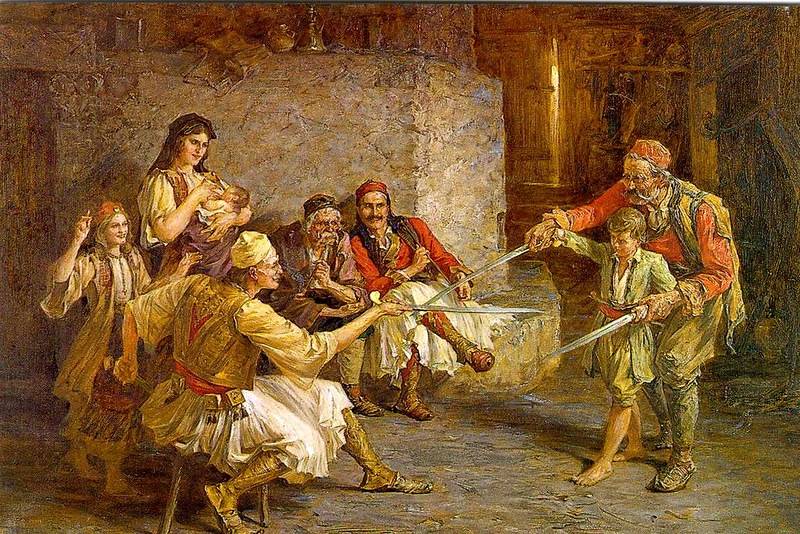
Pavle (Paya) Jovanovitch. "Fencing"
In it we will talk about the struggle of the Serbs for the independence of their country, about Kara-Georgy and his rival Milos Obrenovic.
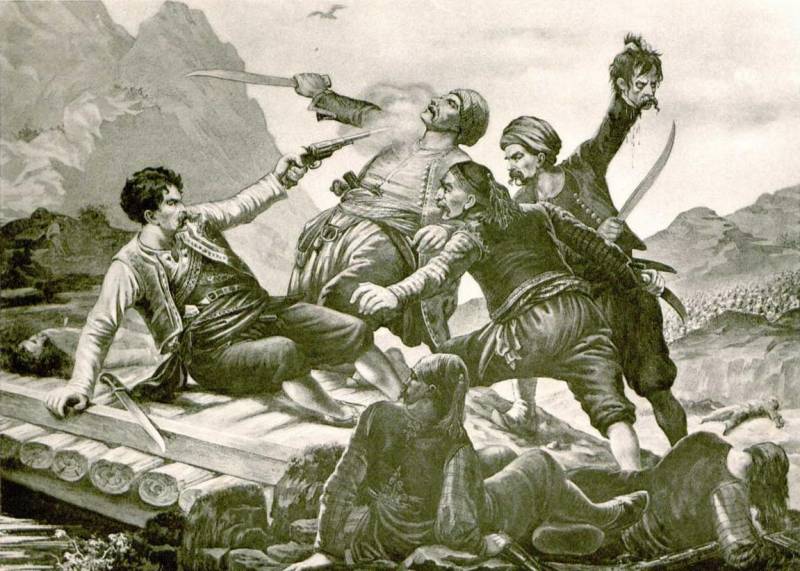
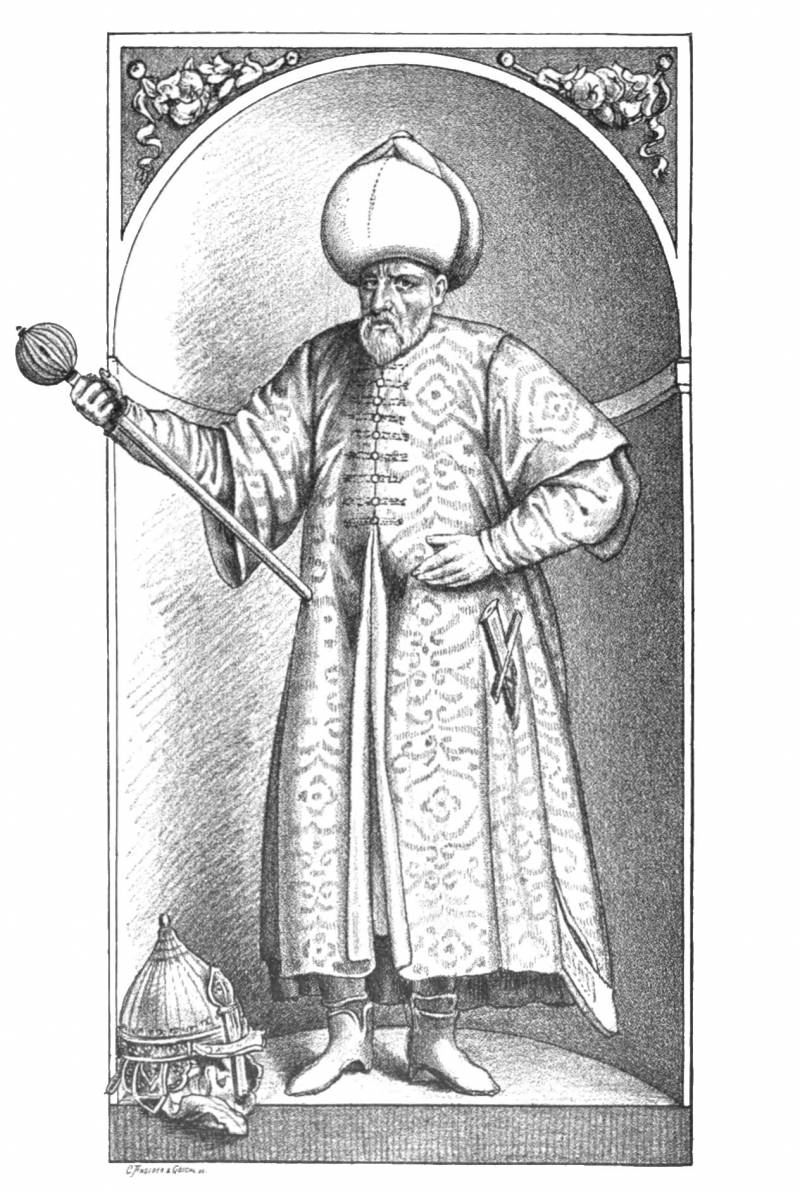
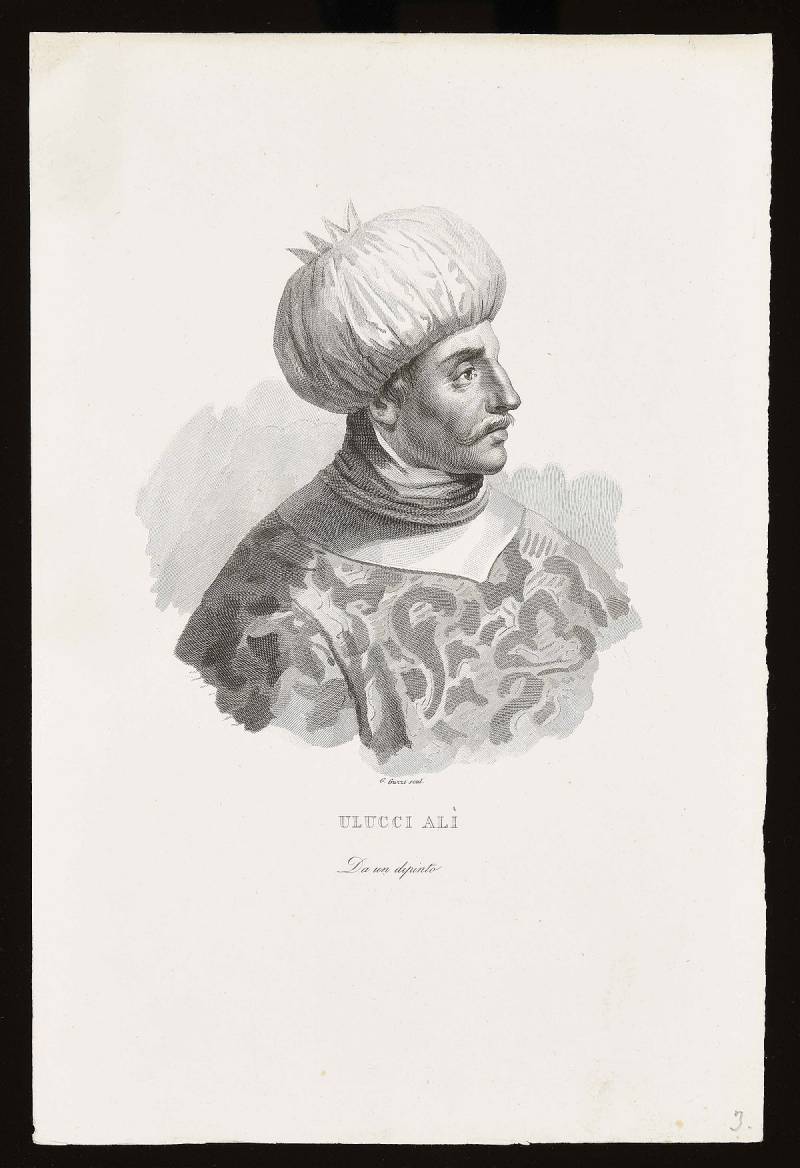
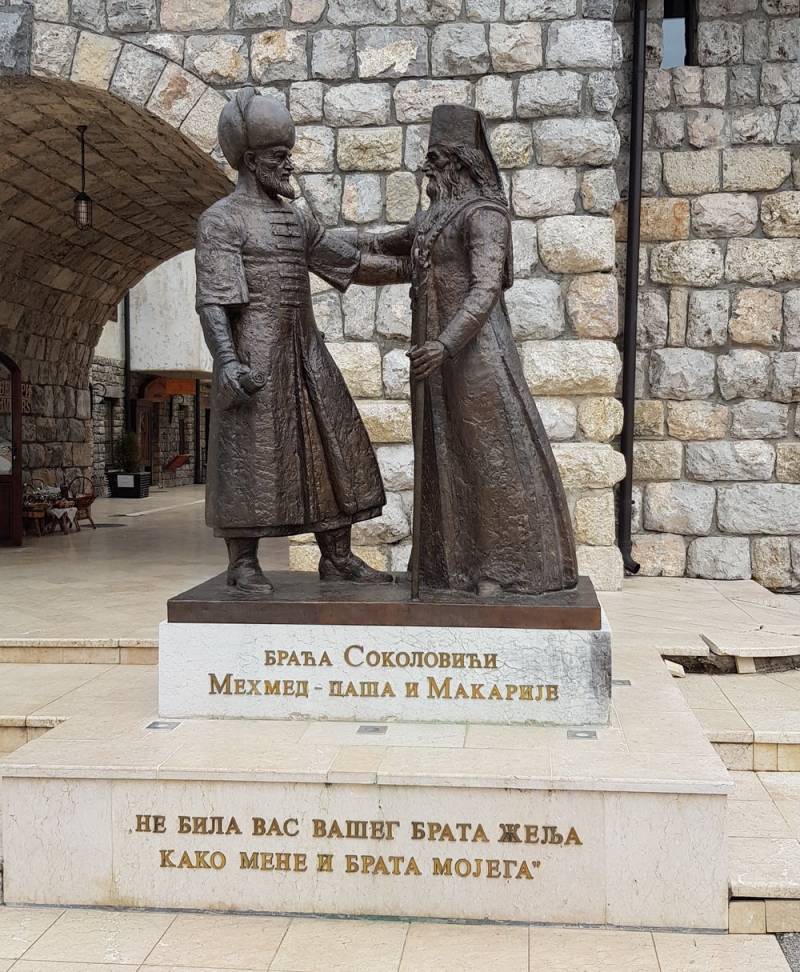
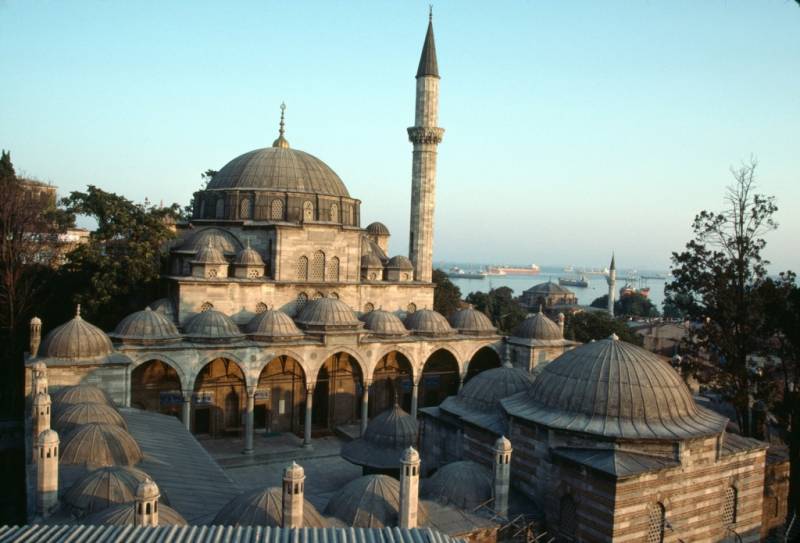
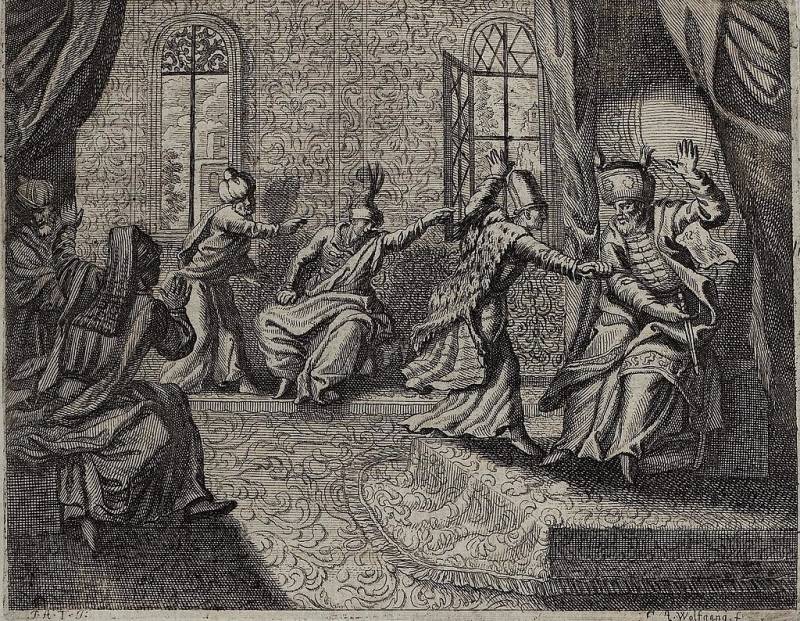
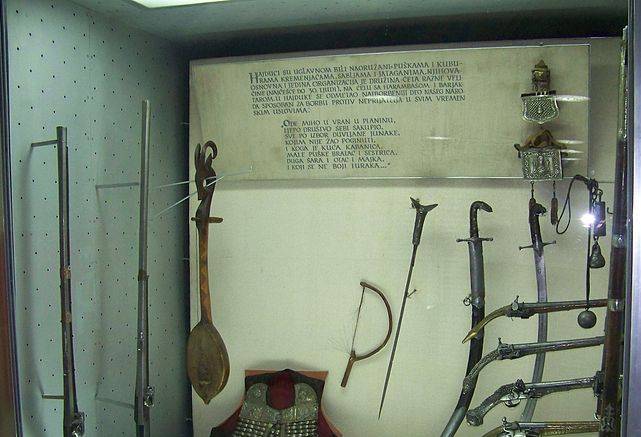
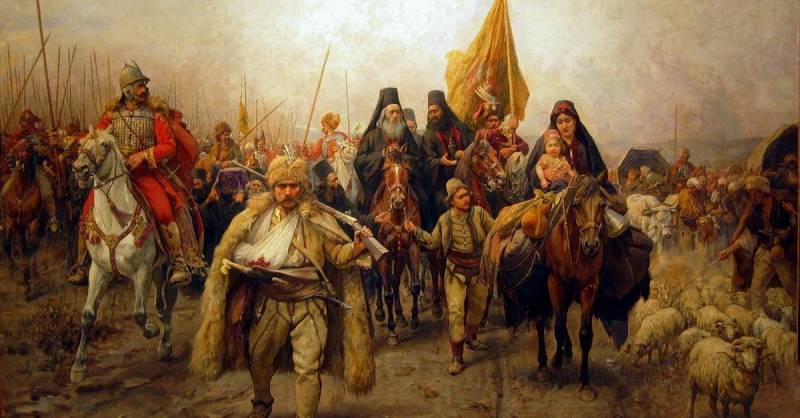
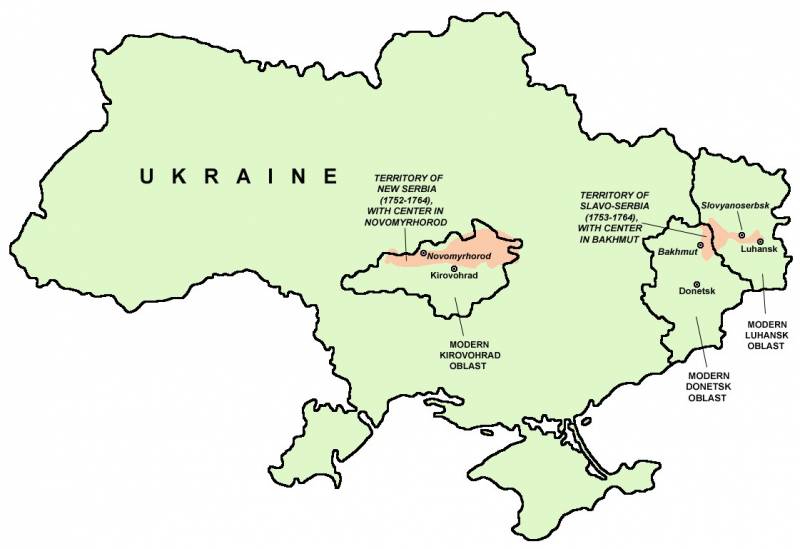
Information